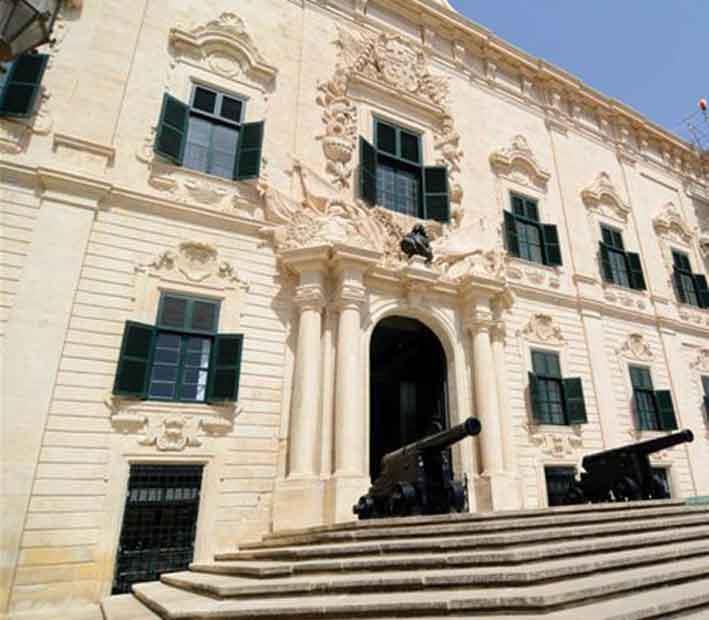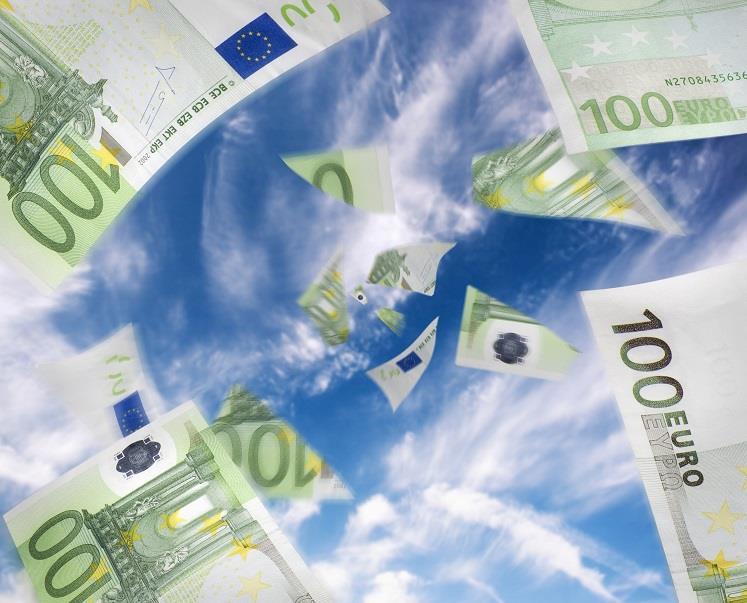“As long as the government has no plans to impose further taxes on private companies to recover part of the funds tied to the financing of the energy reductions for businesses measure, the fact that the Prime Minister did not say where the money is coming from does not worry me,” said new Chamber of Commerce president Anton Borg.
“I would imagine that when the government engaged in an investment of this sort, it had a complete plan in mind. I am not here to serve as a government spokesman but I think that the financing of the energy reductions is part of its plan.”
“The reductions are part of the government’s holistic energy plan – one of the biggest platforms of this government since it was elected to govern,” he added.
During an exclusive interview with The Malta Independent on Sunday, Mr Borg was pressed to say if it is a matter of concern to him that Prime Minister Joseph Muscat has not yet openly stated from where he would be getting the millions of euros required to sustain the energy reductions for businesses.
During a radio interview on One on Tuesday, Mr Muscat did not say, when asked, where the money would come from, but instead chose to say that both the country’s debt and the deficit have been reduced.
Mr Borg also explains that companies that had operations in Libya are facing a common problem – whether or not to slash their workforces. He said that this is easier said than done and pointed out that businesses are in a dilemma as they have invested substantial time and money in workers who have become accustomed to the Libyan way of life.

Do you agree with the government’s introduction of cost increases in over 400 government services? Do you consider this to be taxation by stealth?
It has to be specified what taxes we are talking about, since at times we refer to a tax which, in actual fact, is a fee. But if I were to mention one increased cost that directly affects industry this would be mobile phone charges, since this is directly related to the business community. Unfortunately, each and every government imposes taxes and at this stage we have to accept such measures.
I cannot agree with any tax imposed on businesses but, on the other hand, a government has to impose taxes since it must ensure that its costs are recovered.

Are you satisfied with the way the government is tackling the Libya situation in terms of Maltese businesses that are losing out due to the crisis?
The problem of Libya has topped the agenda of each Chamber council meeting from the time the events in Libya started to unfold. I was elected president two days ago but have formed part of the council for years. During the last two years, the Libya situation has been discussed in every meeting held. The war in Libya is a problem that is affecting businesses, particularly their commitments related to stocks that are at great risk of being lost, among other pertinent issues.
The solution for Libya changes as much as the situation there is changing daily. Solutions have to be found in a much wiser and faster manner than previously. We need to look deeper into the individual problems that businesses are encountering. One common problem that is facing Maltese companies that operated in Libya is that their operations have been brought to a halt and they have to decide whether or not to slash their workforce.
This is something that is easier said than done. How can a business, which has invested a considerable amount of time and money in its employees – who have become accustomed to the Libyan market – now ask those employees to leave?
One of the solutions to this problem could be that the government partially funds these businesses to help them continue to operate and keep their workers on board in the hope that the crisis calms down eventually. By funding, I don’t mean direct funding but something in the form of tax credits, for instance.

Do you concur with the government’s approach of resorting to large public sector employment to address unemployment in the country?
As a Chamber, we can never agree to the imposition of additional taxes to help sustain public sector employment. On the contrary, we believe that past practices that are burdening the private sector with further expenses that can easily be avoided should be eradicated and replaced with modern practices. This will lead to a reduction in bureaucracy which, in turn, will lead to fewer workers having to be engaged in the public sector.
As for excessive bureaucracy, it has been reduced in certain areas but not enough. What is positive is the fact that it has now been admitted that there was a problem with excessive bureaucracy in certain government departments. However, simply talking about the subject is not enough.
Do you think that the incremental amount of €10m per annum in the cost of Cabinet Ministers is justified? Does the Chamber agree with this type of expenditure?
These are politically-related questions you are asking and as the Chamber is a non-government-funded organisation, we would like to remain apolitical. The Cabinet’s size is a decision the Prime Minister has taken – there have been both larger Cabinets and smaller ones. I leave it in the hands of the Prime Minister to decide.
But don’t you feel that the Cabinet – which is a large one – is putting extra financial pressure on the public?
We have always had a system in Malta whereby Ministers were paid far too little, considering they have left their profession to serve the country and their salaries have fallen by a third as a result. I would prefer that Ministers are given a good salary but in return there must be a zero tolerance of abuse on their part. Despite making this point, I am not stating in any way that there is such abuse of power by politicians.

Do you agree with the government bailing out failed businesses as it did in the Café Premier case?
Again, this is another political question to which I do not wish to reply. You have to be familiar with the exact details of the case in question. If I commented on something when certain details are sketchy, I would be getting myself involved in the field of politics – something I will definitely refrain from doing as Chamber president. I don’t know the whole story and you would have to look at all the circumstances that led to the bail-out decision.
The Chamber set up a partnership with the government? As a result, does the government have a majority stake and if so, why?
We have created Trade Malta – I was one of the signatories – and today we have a board in place. This comprises three members nominated by the chamber and four from the government. We have a 49 per cent stake and the government has a majority stake of 51 per cent but the chairman is nominated by the Chamber. The person nominated in this case is my predecessor, David Curmi.
But is it not the case that the chairmanship will change after two years and then it will be the government that appoints the chairman?
Yes, the person nominated as chairman by the Chamber will serve for the first two years but this does not mean things cannot change. But for now, at least for the first two years – which are important when an organisation such as Trade Malta is being established – the chair is in the hands of the private sector.

Do you not think that the government will have an upper hand by being a majority stakeholder in Trade Malta?
This is not a case of the government having an upper hand, as in a situation whereby dividends would be distributed, or a concept based on the obligations to which a private company has to adhere and that one or the other has to have the final say. If you look at the individuals who will be representing the government on Trade Malta’s board, you will see they practically all of them hail from the private sector. We are speaking about prominent businessmen.
But don’t you represent the private sector? Why is there the need for government involvement?
Yes, we represent the private sector. In fact, we have three members from the private sector on the new council. But apart from our three members, three of the four members of the government hail from the private sector and they are also members of the Chamber. So I don’t see why the government would have the upper hand. The scope of Trade Malta is to provide a service to the business community – not only to the manufacturing sector but also to other sectors that can offer a service overseas, which will help to broaden or enter new markets.
We have been saying that we needed to set up Trade Malta since I was president of the FOI in 2002 – hiving off the work that Metco used to be entrusted to do for reasons related to EU regulations, as many other countries had to do. If one looks at Italy, for instance, this work was entrusted to none other than the General Confederation of Italian Industry (known as Confindustria). In Malta’s case, we tried to see whether this work could be done by the Chamber or FOI but our proposal was not accepted. The government has a majority stake in something that is a non-profit organisation. We need the government’s help since it will finance the concept for the first few years until Trade Malta becomes a self-sustainable entity.
Will you be involved directly in the choice of Trade Malta’s CEO?
No, there are the members of the Chamber – quite a few of them – who have been entrusted with and involved in the setting up of Trade Malta.
What is the Chamber’s next set of proposals for government?
In 2003, we decided that the proposals for development of the country’s economic sector should be drawn up by us, rather than waiting for the government to emerge with proposals. At the time, we worked on two documents, one of which was in respect of industrial policy – which is related to the manufacturing sector in particular. Six proposals were presented by the chamber, similar to those of Business Europe’s – the leading organisation for advising politicians at EU level.
Business Europe emerged with seven proposals, six of which were very similar to ours. Some of the proposals were tied to investment in research and development, energy, education, and skills enhancement. The scope of the proposals was to see how manufacturing in Europe could rise to an average of 20 per cent of contributions to GDP. Currently, in Europe it is 15 per cent or less. As for Malta, the sector has its problems which need to be addressed.
The other document is our economic vision for 2014-2020. We had a positive reaction, both from the government and Opposition, where six policy fundamentals were raised, along with 11 target sectors. The only target sector not implemented in Vision 2015 is tied to logistics. My mission is to see that our economic vision – in other words our recommendations – are discussed with the Ministries involved, through one-to-one meetings, and that we get the Ministries to say whether or not they agree with them. We will also ask the Ministries to give us a time-frame covering when they intend implementing our proposals, assuming they agree to them. But I don’t see why they shouldn’t.
The end result is competitiveness. If we look at improving fiscal consolidation, we will not have the deficit we had before, so in turn the private sector will not be burdened with additional taxes.
One of the proposals, in a nutshell, is that excellence should become the hallmark of Maltese businesses. The problem in this country is that anything goes and a change in culture would be welcomed.

Do you feel that MCESD is still more of a talking shop?
We hope that the proposals presented to the MCESD are not only discussed but implemented. We always meet and say what a good idea this and that is, but most of the time it only remains an idea. This has to change. We need MCESD to become more relevant. And it also needs to be given more autonomy. The fact that MCESD meets in the premises of a Ministry’s shows that it needs to be given more independence.
Energy reductions: When you view the reductions for the economy as a whole, will they have a negative or positive impact?
How can you say that it will have a negative impact when we are talking about a 25 per cent reduction in energy costs? It’s positive. The question is how sustainable it is. The present government had an energy plan in which certain time-frames were not kept but I won’t get into the issue of whether or not the reasons behind the delays were valid. The plans are part of a holistic plan. We asked if the reductions could come into effect before 1 April but our request was not met for financial reasons. Today we have our 25 per cent reductions and I have no doubt this will definitely have a positive impact.
But when the Prime Minister was interviewed on One Radio this week, he was asked to say where he would be getting the €50 to €70 million to pay for these reductions for businesses. His reply was that the deficit has fallen, as has public debt, but he did not give a direct answer. Does this not worry you?
I think that when the government engaged in an investment of this sort, it had a complete plan. I am not here to serve as a government spokesman but I think that the financing of the reductions is part of the government’s plan. As long as it has no plans to turn to the private sector by imposing taxes on it to recover part of the cost, it does not worry me at all as it is part of the government’s holistic energy plan – one of the biggest platforms of this government since it was elected to govern.

Do you feel the economy is faring well?
Holistically, the economy is faring well but this is not true of all sectors. Some sectors are doing well, others not so well. Retail, mainly, has witnessed a decline. Online purchasing is one of the reasons for this. Other countries have found solutions to the problem with consumers having the option to purchase from their own country’s stores online.
But consumers cannot be blocked from purchasing goods from foreign stores online?
No, of course not. But Malta’s situation is different from other countries. Its size is what it is, so the choice is limited. Economies of scale are a big problem in Malta and we have to accept the inherent problems caused by these.
As for Gozo, I feel that the government has good plans for the sister island and it is to be hoped that these will come to fruition.
Your predecessor, David Curmi, was in favour of more market surveillance when it comes to people entering Malta from Sicily and selling goods and services? Do you share his views?
We have always wanted a level playing field for everyone. For example, when a Maltese person resident goes to Sicily, for instance, thoroughly checks are carried out to ascertain whether VAT has been paid on any purchases. However, when a person comes from Sicily to Malta, there are no controls whatsoever so, as a result, something can be sold to the consumer without him or her having to pay VAT. Despite this, we are in favour of parallel trading. We have no problem with competition, provided that it is fair.